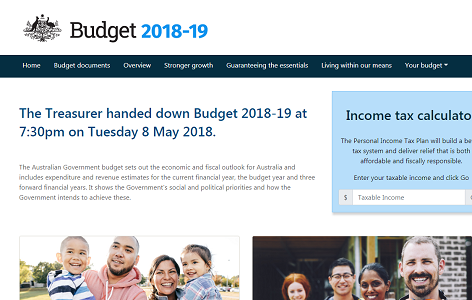CEH reaction to 2018-19 Budget: Long term refugee health a low priority
The Centre for Culture, Ethnicity (CEH) and Health welcomes $5 million for the Fostering Integration Grants Scheme, but is disappointed with the approach to people from refugee backgrounds, generally, in the 2018-19 federal budget.
The refugee intake will increase to a modest 18,750 places under the 2018-19 Humanitarian Program, but this increase is offset by a number of other measures which offer little to asylum seeking populations.
The Department of Human Services is forecasting a reduction in financial aid for people from refugee and migrant backgrounds to $123 million in 2018-19 halving the amount from 2016-17. At the same time, the amount spent for the same period on offshore processing will be $760 million.
“These changes are significant and will impact on the health and wellbeing of people new to Australia,” CEH Co-Manager Alison Coelho said today. Unfortunately, it seems to be another punitive measure targeting those most vulnerable in the community.
Some of these savings will be made by denying people from refugee and migrant backgrounds access to Centrelink benefits until four years after their arrival. Other savings will be made by refusing access to job searching services for newly-arrived refugees for six months.
“It has been proven time after time that access to employment, housing and establishing social networks has a powerful and positive effect on people who are new Australians,” she said.
“This government may see a small financial advantage to placing barriers to this kind of access, but what is being missed is this comes at a greater cost, namely negative outcomes on health and well-being,”.
The Centre for Culture, Ethnicity & Health improves access to Australia’s health for people from refugee and migrant backgrounds.
“The federal government needs to recognise these changes have an effect on these members of our community and can lead to an increased need for specialised, expensive health services,” she said.
“In the long term the issues created by these cuts lead to a much greater cost for our society and unfortunately the greatest costs are borne by the refugee and migrant communities, themselves, Alison said.
“We call on the federal government to take a longer-term view of new arrivals to Australia to ensure they are supported in a way that will support them to reach their potential as valuable members of Australian society,”.
For further comment call Matt Loads on 0403011174
Related Information
Connecting with communities using Health Literacy principles
Plain language is essential for effective communication. When health information is presented in plain language, it is easier for people to understand. This is particularly important when dealing with diverse communities where English may not be the first language for many residents.
Co-design: what, why and how?
We know that collaboration is an important step in engaging diverse communities in services, particularly those that face certain barriers such as linguistic and cultural differences, lack of awareness of services, and limited access to information. So, how can we collaborate with these communities? Read on for our thoughts.
The Arthur Kleinman Explanatory Model
This model was first proposed by Arthur Kleinman, who developed a set of eight questions to ask a client to learn more about their explanatory model to provide better patient-centered care.
Addressing challenges to work cross culturally; new cultural competence bundles
When there are gaps in cultural awareness and language, there are more misunderstandings, biases and sometimes compromised health outcomes. The good news is that there is so much we can do to be more prepared.

Let us inform you about our EVENTS & NEWS?

